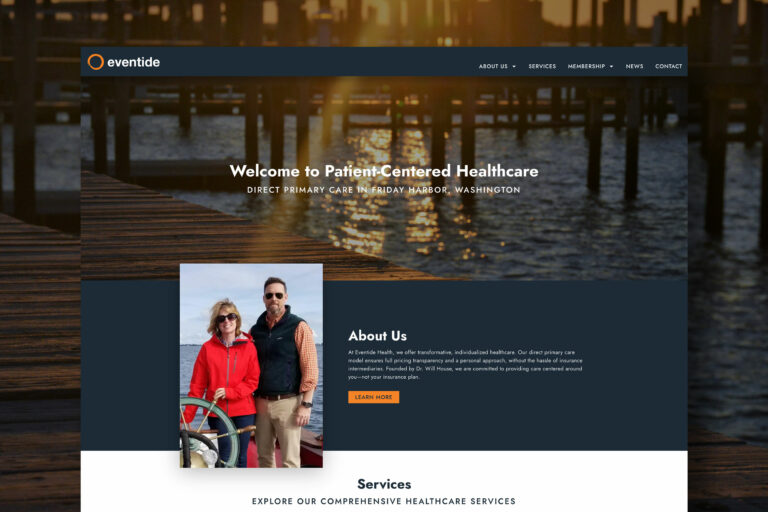The internet has become integral to our lives in today’s fast-paced digital world. Businesses of all types and sizes harness the power of the online realm to reach a global audience, sell products, or share information. However, amid the excitement of establishing a web presence, many website owners need to pay more attention to a crucial aspect of their online identity: legal pages. In this comprehensive guide, we’ll delve into the indispensable significance of having legal pages on your website and the potential threats and costs that could surface if you neglect these essential documents.

Legal Compliance: Protecting Your Interests
Legal compliance is the bedrock upon which trustworthy online businesses are built. It is not a mere option but a fundamental requirement, and your website’s legal pages are the guardians of this compliance. Among these pages, the Terms of Use and Privacy Policy define the rules of engagement between your website and its visitors.
Terms of Use: Defining Expectations and Responsibilities
Your website’s Terms of Use articulate a set of rules and conditions that visitors must abide by when interacting with your online platform. These rules define the expectations and responsibilities for both parties involved — your business and your users. They outline the scope of permitted activities, content usage policies, and user behavior guidelines. Establishing these clear parameters ensures everyone is on the same page, reducing the likelihood of misunderstandings and disputes.
Privacy Policy: Safeguarding User Data and Rights
In an era marked by increasing concerns about data privacy, your website’s Privacy Policy is more than a legal formality — it is a commitment to safeguarding your users’ personal information. This document defines how user data is collected, processed, and protected. It outlines users’ rights over their data and how they can exercise those rights. Complying with data privacy regulations, such as the General Data Protection Regulation (GDPR), is essential not only from a legal standpoint but also for building trust with your audience.
Protection of Your Interests
Beyond setting expectations and safeguarding user rights, legal pages protect your interests as a website owner. They provide a legal basis for business practices and can be invaluable in disputes or legal issues. For example, if a user engages in prohibited activities outlined in your Terms of Use and disputes arise, these terms can serve as a reference point for resolution. Similarly, your Privacy Policy can demonstrate your commitment to data protection, which is crucial if allegations of mishandling user data ever surface.
Transparency and Trust
Maintaining comprehensive and up-to-date legal pages demonstrates transparency and a commitment to ethical online conduct. This transparency fosters trust with your audience, making them more likely to engage with your website and share personal information, such as purchasing or subscribing to newsletters. In an age where data breaches and online scams are common, clear legal pages can set your website apart as a secure and reputable online destination.
Legal compliance is not just a formality; it’s a foundational element of your online presence. Your website’s legal pages, including the Terms of Use and Privacy Policy, establish the rules of engagement, protect your interests, and demonstrate your commitment to ethical online practices. Investing in these critical documents ensures transparency, reduces the risk of legal disputes, and builds trust with your audience — a vital step towards the long-term success of your online venture.

Safeguarding Your Intellectual Property
Intellectual property (IP) is often a business’s most valuable asset in the digital age. Your website is likely teeming with original content, unique designs, and branding elements that define your identity. Protecting these assets is not just a good practice; it’s essential for the longevity and success of your online business. Your website’s legal pages, such as Copyright Notices and Trademark Usage Guidelines, are your tools for safeguarding this invaluable intellectual property.
Copyright Notices: Defining Ownership and Usage
Copyright Notices serve as your declaration of ownership over the content published on your website. They make it explicitly clear to visitors that the articles, images, videos, and other creative works are protected by copyright law. Doing so deters unauthorized use, reproduction, or distribution of your content. Moreover, Copyright Notices establish your legal standing to take action against those who infringe upon your intellectual property rights.
Trademark Usage Guidelines: Preserving Brand Integrity
Having clear Trademark Usage Guidelines is essential if your website includes trademarks, logos, or other branding elements. These guidelines define how others may or may not use your trademarks. By setting forth the terms of usage, you prevent confusion, misrepresentation, or dilution of your brand. This protects your brand identity and maintains its integrity and value.
Preventing Unauthorized Use
Without these legal pages, your intellectual property is at risk of being misappropriated or exploited by others. Unauthorized use can range from simple content-copying to more intricate infringements, such as counterfeiting products with your branding. Legal pages act as a deterrent, signaling potential infringers that your intellectual property rights are well-established and that you are prepared to take legal action to protect them.
Establishing Legal Recourse
In the unfortunate event of intellectual property theft or infringement, having clearly defined legal pages can make pursuing legal action more straightforward. Copyright Notices and Trademark Usage Guidelines prove your ownership and the terms of use. This documentation can bolster your case and expedite resolution, saving you time and resources.
Preserving Brand Reputation
Your brand’s reputation is often tied to the quality and uniqueness of your intellectual property. Intellectual property theft or misuse can tarnish that reputation. By protecting your IP, legal pages help maintain the trust and goodwill your audience places in your brand. This fosters brand loyalty and encourages repeat business and customer referrals.
Safeguarding intellectual property through legal pages is a proactive measure that should not be overlooked. These pages, such as Copyright Notices and Trademark Usage Guidelines, protect your creative works and branding assets, deter unauthorized use, and provide a legal foundation for recourse in case of infringement. By preserving the integrity of your intellectual property, you protect your brand and maintain your competitive edge in the digital marketplace.

Data Privacy and GDPR Compliance: User Trust and Legal Requirements
In today’s data-driven world, privacy is paramount. Users expect their personal information to be handled responsibly and ethically. Legal pages, especially the Privacy Policy, demonstrate your commitment to protecting user data and ensuring compliance with data privacy regulations like the General Data Protection Regulation (GDPR). Let’s delve into why this matters for your online business.
Transparency and User Trust
Your website’s Privacy Policy bridges transparency between your business and your users. It outlines how you collect, use, and safeguard their data. By providing clear and concise information, you foster trust with your audience. Users are more likely to share their information and engage with your website when they know their data is treated with care and respect.
Legal Obligation and Avoiding Fines
Compliance with data privacy regulations is not just good practice; it’s often a legal requirement. The GDPR, for instance, imposes stringent rules on how the personal data of European Union (EU) citizens is processed. Failure to comply can result in hefty fines. Even if your business is not based in the EU, you may still need to adhere to these regulations if you collect data from EU residents. Your Privacy Policy shows that you’re committed to meeting these legal obligations.
Empowering Users with Control
Privacy Policies empower users by informing them of their rights regarding their data. These rights may include accessing, rectifying, or deleting their data. By providing this information, you meet legal requirements and empower users to make informed choices about their data, further enhancing their trust in your brand.
Protecting User Data
Data protection is a top concern for users in an era of frequent data breaches and cyber threats. Your Privacy Policy outlines the measures you have in place to protect user data from unauthorized access or breaches. It reassures users that their information is safe, reducing concerns about potential data vulnerabilities.
International Reach and User Base
Having a well-crafted Privacy Policy is even more critical if your website has an international audience or customer base. Different regions have varying data protection laws, and your Privacy Policy should be designed to accommodate these differences while ensuring compliance. Failure to do so can lead to legal complexities and damage your global reputation.
Reputation and Brand Image
A commitment to data privacy and GDPR compliance through your legal pages contributes positively to your brand’s image. It demonstrates ethical business practices and responsibility, which can enhance your reputation and attract users who prioritize data security and privacy.
Data privacy and GDPR compliance are not just legal requirements but essential to maintaining user trust and a solid online reputation. Legal pages, particularly the Privacy Policy, serve as your commitment to protecting user data, complying with regulations, and empowering users with control over their information. By prioritizing data privacy, you avoid potential fines and cultivate a loyal user base that values and trusts your online business.

Liability Limitation: Shielding Your Business
Legal pages, such as Disclaimers and Liability Waivers, are crucial tools for safeguarding your online business from potential legal claims and financial liabilities. These pages define the scope of your responsibilities and the limits of your liability, offering protection in various scenarios. Here’s why they are essential:
Defining the Limits of Responsibility
Disclaimers and Liability Waivers are instrumental in defining the limits of your responsibility as a website owner. They specify the circumstances under which you can or cannot be liable for user damages or losses. This clarity helps users understand the inherent risks associated with using your website.
Protection Against Legal Claims
These legal pages can serve as your first line of defense in disputes or legal claims. By outlining your liability’s potential risks and limitations, you reduce the likelihood of users pursuing legal action against your business. This proactive approach can save you from costly legal battles and financial repercussions.
Product or Service Disclaimers
If your website offers products or services, Disclaimers can inform users about any limitations, risks, or potential side effects associated with them. This is particularly important in industries like health, finance, or law, where providing accurate information and managing user expectations is paramount. You may face legal challenges related to product or service performance without disclaimers.
Safeguarding User-Generated Content
If your website allows users to contribute content, such as reviews, comments, or forum posts, having Disclaimers can protect you from liability for the content users post. These disclaimers can state that you are not responsible for user-generated content’s accuracy, legality, or appropriateness, helping shield your business from potential legal issues related to user contributions.
Limiting Liability in Unforeseen Circumstances
In unforeseen circumstances, such as technical glitches, website downtime, or data loss, Disclaimers and Liability Waivers can limit your liability for any resulting damages or losses experienced by users. They provide a legal basis for managing expectations and mitigating your financial exposure in such situations.
Fostering Transparency
Legal pages like Disclaimers demonstrate transparency and honesty in your business practices. They show that you are upfront about potential risks and limitations, which can enhance user trust. This transparency is crucial in industries where trust is critical to user decisions.
Customization for Specific Needs
Legal pages are not one-size-fits-all. They can be customized to address your industry or niche’s risks and liabilities. This tailoring ensures that your legal protection is aligned with your unique business circumstances.
Disclaimers and Liability Waivers are invaluable tools for protecting your online business from legal claims, financial liabilities, and disputes. They define the boundaries of your responsibility, manage user expectations, and demonstrate transparency in your business practices. By including these legal pages on your website, you not only reduce the risk of legal challenges but also foster a sense of trust and security among your users, contributing to the long-term success of your online venture.

Terms of Service for E-commerce: Ensuring Smooth Transactions
For e-commerce websites, having well-defined and comprehensive Terms of Service (TOS) is more than just a legal requirement—it’s crucial to building trust with your customers and ensuring seamless transactions. These TOS pages outline the rules, policies, and expectations governing your platform’s buyer-seller relationship. Here’s why they are indispensable:
Defining Transaction Terms
TOS pages for e-commerce clearly define the terms of the transaction process. They cover essential aspects such as payment methods, shipping policies, return and refund procedures, and warranties or guarantees. By laying out these details in writing, you minimize ambiguity and reduce the likelihood of disputes or misunderstandings between you and your customers.
User Expectations and Responsibilities
Through your TOS, you establish user expectations and responsibilities. Buyers understand their obligations, such as providing accurate shipping information or adhering to payment terms. At the same time, sellers can outline their commitments, like shipping products promptly and providing accurate product descriptions. This clarity ensures that both parties enter into transactions with a common understanding.
Dispute Resolution Framework
In the event of disputes or disagreements, the TOS provides a framework for resolution. Clear dispute resolution procedures can save you and your customers time and frustration, whether it involves a refund request, a product return, or a dispute over the quality of goods received. It can also help prevent costly legal actions.
Legal Protection for Both Parties
TOS pages serve as a legal agreement between you and your customers. They protect both parties by setting out the terms and conditions for transactions. For sellers, this means protection against fraudulent chargebacks or unreasonable return requests, while buyers benefit from knowing their rights and recourse in case of issues.
Enhancing Trust and Credibility
Clear and well-crafted TOS pages enhance the trustworthiness and credibility of your e-commerce business. When customers see that you have transparent policies, they are more likely to feel confident in purchasing from your website. Trust leads to higher conversion rates and encourages repeat business.
Legal Compliance
TOS pages are often legally required for e-commerce websites, and compliance with relevant consumer protection laws is essential. Failure to have these pages in place or to follow through on their terms can lead to legal consequences, fines, or damage to your reputation.
Adaptability to Changing Circumstances
E-commerce businesses can evolve, and your TOS should be adaptable to changing circumstances. Reviewing and updating your TOS as needed to reflect new products or services, regulation changes, or business model shifts is essential.
Clear and comprehensive Terms of e-commerce service are essential for ensuring smooth transactions, building customer trust, and providing legal protection for buyers and sellers. These legal pages define transaction terms, outline user responsibilities, offer a framework for dispute resolution, and enhance your brand’s credibility. By prioritizing the creation and maintenance of these pages, you create a secure and transparent shopping environment that benefits your customers and contributes to the success of your e-commerce venture.

Preventing Online Fraud: Deterrence and Protection
Legal pages serve as a critical line of defense against online fraud and malicious activities on your website. By explicitly stating your policies and the consequences of fraudulent behavior, you deter individuals from engaging in harmful actions and protect your online business. Here’s why this proactive approach is essential:
Deterrence of Malicious Activities
Legal pages, such as Acceptable Use Policies and Security Guidelines, clearly outline what constitutes prohibited activities on your website. These policies deter individuals from engaging in malicious actions, such as spamming, hacking, or scamming. Potential wrongdoers are less likely to target your website when they know your strict anti-fraud measures.
Protection of User Experience
Online fraud and malicious activities can disrupt your website’s user experience, generating genuine user frustration. By taking a proactive stance through legal pages, you protect the integrity of your website and maintain a positive user environment. This, in turn, helps retain loyal users and encourages continued engagement.
Legal Recourse in Case of Fraud
Should fraudulent activities occur despite your preventive measures, legal pages can provide a foundation for taking legal action against wrongdoers. These policies outline the terms and conditions of using your website and clearly state the consequences for violating them. This documentation can support your case if you must pursue legal action against individuals engaged in fraudulent activities on your platform.
Protection of Sensitive Data
If your website handles sensitive user data, such as payment information or personal details, legal pages can specify the security measures you have in place to protect this data. This reassures users that their information is secure and discourages potential data breaches or cyberattacks.
Minimization of Financial Loss
Online fraud can result in significant financial losses, including chargeback fees, lost revenue, and damage to your brand’s reputation. By having legal pages that deter fraud and provide a clear framework for handling fraudulent transactions, you reduce the financial impact of these activities on your business.
Preservation of Website Integrity
Maintaining the integrity of your website is essential for user trust and reputation. Legal pages demonstrate your commitment to ethical online practices and signal to users that your website is a secure and trustworthy destination. This, in turn, encourages user engagement and fosters brand loyalty.
Customization to Suit Your Business
Legal pages can be tailored to your specific business needs and industry. You can outline the fraudulent activities most relevant to your platform and set appropriate safeguards and consequences. This customization ensures that your legal measures are aligned with your unique business circumstances.

Potential Threats and Costs of Neglecting Legal Pages
Shortcuts might seem tempting but can come at a significant cost. At the same time, establishing legal pages might initially seem mundane, but overlooking them can open a Pandora’s box of issues. From severe financial repercussions to tarnished reputations, the absence of these pages can inadvertently set a website up for challenges. To underscore the importance, let’s delve into the specific threats and costs that can arise when these critical pages are missing:
- Legal Entanglements: The absence of legal pages leaves your website vulnerable to legal actions from customers, competitors, or regulatory authorities.
- Data Vulnerability: Inadequate privacy policies can lead to data breaches, resulting in financial penalties and reputational damage.
- Intellectual Property Vulnerability: Lack of copyright notices can make it easier for others to misuse your content, harming your brand’s identity.
- Trust Erosion: Users may hesitate to engage with your website if they perceive a lack of transparency and legal safeguards.
- Financial Consequences: Legal disputes, fines, and damage to your brand’s reputation can lead to substantial financial losses.
Legal pages are not mere formalities but essential safeguards for your online business. They ensure legal compliance, protect your intellectual property, and build trust with your audience. Neglecting these critical documents can expose your business to many threats and potentially hefty costs. Therefore, investing time and effort to create and maintain comprehensive legal pages is imperative, securing your online business in an ever-changing digital landscape.















